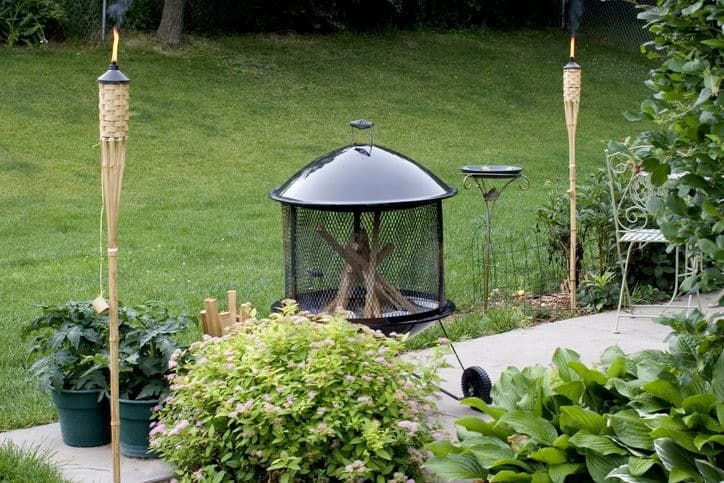
Mosquitoes can be a pain in the rear… on the legs, arms, ankles, feet and just about any area of skin that is exposed. There are a few simple steps to create a mosquito free garden but you have to start from the very beginning. Successful long term mosquito control requires a knowledge of where and how they develop. All mosquitoes pass through four life stages: egg, larva, pupa, and adult. The number of days from egg to adult varies with species and temperature. Under ideal conditions, some mosquitoes can complete their cycle of development from egg to adult in less than a week. Some mosquitoes lay their eggs in standing bodies of water while others lay them in damp areas around the yard.
Unfortunately, there’s no sure-fire method to eliminate all mosquitoes. However, there are steps you can take to prevent and or control them.
Here are the right steps for a mosquito free garden:
Preventing or reducing the populations of mosquitoes starts with identifying their breeding grounds…or, should we say, breeding waters, and then taking steps to eliminate these attractors.
Garden ponds
If you have a garden pond, make sure there is constant movement on the surface of the water. Mosquitoes don’t like moving water. To achieve this movement install a waterfall or a fountain. You can also add mosquito eating fish to your garden pond.
Puddles
Identify areas in the yard where water stands for more than a day after a good rain. Fill these low-lying areas with soil or install a drainage system to provide good drainage.
Containers
Identify containers or other objects in the yard that hold water after a rain. Take steps to make sure these objects will drain properly or remove them from the yard.
Gutters
Clogged gutters are a perfect place for mosquitoes to breed. Make sure your gutters and downspouts are clean.
Decks or porches
If you have a wooden deck or porch that allows rain or hose water through the cracks, make sure that the area underneath these structures drains properly. Install a 6″ bed of gravel and perforated drainage pipes of necessary to remove water from these areas.
Bird baths
Be sure to clean and refill bird baths at least once or twice a week with fresh water.
Stumps
Remove old stumps or fill their cavities with soil and plant something in them.
Plastic sheeting
Remove plastic sheeting or other refuse that collects water.
Leaking faucets
Repair any leaking faucets or air conditioners and improve drainage in these areas.
Other Methods of Control
- Fans– If you are spending time outdoors on a deck, porch or other outdoor living space, strategically placed electrical fans will definitely help to keep the mosquitoes away. Mosquitoes are weak fliers and the wind generated by fans will keep them at bay.
- Bug zappers & other devices– Many other consumer products are available to help control or repel mosquitoes in your environment. Electrical devices, also called “bug zappers,” are available however tests show that these kill a much greater percentage of non-harmful and beneficial insects than mosquitoes. Other types of mosquito traps use carbon dioxide, warmth, light, and various chemicals as attractants and claim to capture tremendous numbers of mosquitoes. Still, others claim that devices which emit high-frequency ultrasonic sound work to repel mosquitoes. There’s little evidence to show that any of these often expensive devices are effective in reducing mosquito populations. Therefore, I wouldn’t recommend purchasing them.
- Citronella oil– Products containing citronella oil, such as citronella candles, can be quite effective at repelling mosquitoes. Also, planting plants that contain citronella, such as the lemon-scented geranium (also know as “Mosquito Plant), in or nearby your outdoor living spaces can help to repel mosquitoes. Just make sure to rub or crush a few leaves on these plants when spending time outdoors in these areas.
- Birds– Martin birds eat thousands of mosquitoes a day. Install bird houses to attract them to your property. Bats are also known to eat a lot of mosquitoes.
- Light bulbs– If your outdoor areas are lit, use General Electric Yellow Bug Lights instead of incandescent white lights, which attract mosquitoes.








